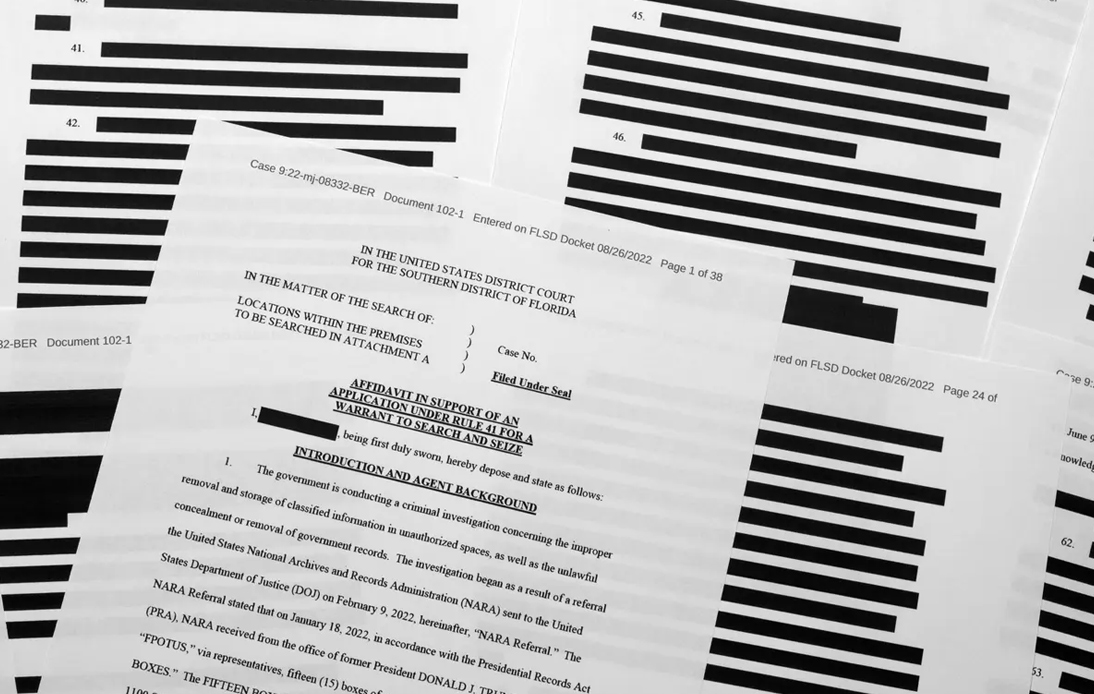
On Friday, the US Department of Justice released the affidavit used to obtain a warrant to search former president Donald Trump’s Florida home.
While the affidavit’s unveiled version was heavily redacted, it sheds new light on the federal investigation into his administration’s handling of sensitive documents.
According to the affidavit, the FBI asked a judge for a search warrant for Mr. Trump’s Mar-a-Lago property, saying agents expected to find “evidence of obstruction” of justice.
Top-secret files had been stored in the former president’s house, investigators said.
However, the Justice Department stated that it had censored the affidavit to protect “a significant number of witnesses.”
The released documents were filed before the Palm Beach property was raided on August 8. Therefore, they do not contain new details about the classified documents reportedly found there.
FBI agents reportedly retrieved at least 12 boxes of documents marked with the highest classification, suggesting they contained the US government’s most sensitive secrets, from Mr. Trump’s property.
The affidavit said the FBI had “probable cause” to believe that agents would discover “evidence, contraband, fruits of crimes or other items illegally possessed.”
“There is also probable cause to believe that evidence of obstruction will be found at the premises,” the FBI agent who wrote the letter added.
The documents also showed that the criminal investigation began after the National Archives, which maintains the White House’s historical records, identified the classified files.
The FBI reviewed those materials, finding that the boxes contained 184 classified documents, including 25 marked “top secret2” and others “noforn,” which is a term that describes documents that should not be released to foreign nationals.
During the Mar-a-Lago search, agents also found files with what appeared to be handwritten notes from Mr. Trump interspersed with newspapers, magazines, and other documents.
“Of most significant concern was that highly classified records were unfoldered, intermixed with other records and otherwise unproperly identified,” the document said.
The revelations raised concerns that Mr. Trump may have violated the Espionage Act that governs classified information and at least two other federal laws.
However, 21 of the 38 pages of the affidavit remain sealed. According to a separate document, some pages have been censored to “protect the safety and privacy of civilian witnesses, in addition to law enforcement personnel, as well as to protect the integrity of the ongoing investigation.”




















